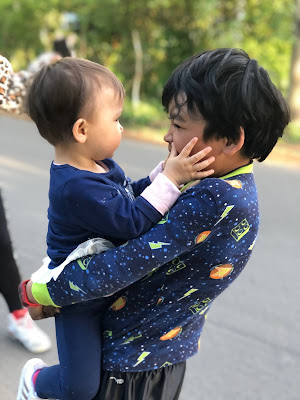This is it, the last chapter of the Tao Te Ching. I began this series on the 81 chapters of this ancient text almost five years ago. Wow, that is hard for me to believe. The intention for the series was to share some reflections on each chapter based on my decades long love of this wisdom teaching, which led me to spend several years delving into the mystery and beauty of the original Chinese characters. What I’ve tried to offer is not another translation of each chapter – there are already so many of those – but rather some insight or application that has arisen in my own life through my engagement with the text.
So here we are, at the end which does not feel like the end. The motion of Tao is cyclical, manifesting and returning, rather than linear. It ends where it begins. This is the way.
With that in mind, I’m drawn to the very end of this chapter, which, at least to me, sums up the arc of wisdom throughout the Tao Te Ching.
Heaven’s Tao benefits yet does not interfere
Sage’s Tao acts yet does not contend
Here is our model for living in awakened moments. The energy of the universe is like the sun, providing light and warmth to all without regard to merit, without judgment, without manipulation. The ten thousand things of creation evolve and unfold according to their nature. We don’t have to look far to see how interference, no matter how well intentioned, often leads to unexpected and undesired results. This, in turn, requires more and more manipulation, layers upon layers of course correction to restore balance, which is never truly achieved and must be artificially maintained.
We can think of examples in our communities and in our own lives where we sought to make some improvement or to bestow some benefit that did not turn out the way we imagined. Think kudzu. For more entertaining examples, think of all the science fiction tales based on time travel that wreaks havoc with history’s trajectory, or medical breakthroughs that unleash unanticipated devastation. It’s no accident that Star Trek’s “prime directive” prohibited interference with the natural development of alien civilizations. (And yes, some of the best storylines in Star Trek involved the violation of the prime directive!)
Yet non-interference does not mean non-engagement. The sage acts. The key is in the absence of striving or contending. Appropriate actions arise naturally and effortlessly when they are in harmony with the movement of Tao’s intrinsic energy. Ordinary people sometimes act in extraordinary ways, and we call them heroes. When asked about their actions, they often say that they didn’t think. They just instinctively responded to a perceived need. I’m thinking of a man I read about recently who, in the moments after his outside wedding, saw a boy drowning in a canal. Leaving his bride and the photographer wondering what was going on, he raced to the water’s edge and without hesitation jumped in the water and pulled the boy out.
Not all examples are so dramatic. I’m thinking of a friend who baked cookies for me when I was having a really bad day. When presented with the cookies, I burst into tears of gratitude. Her gesture was perfect and exactly what I needed. She thought nothing of it, but to me it changed everything.
When we self reflect, we can often see that most of our effort and striving happens in our thinking minds, when we are struggling with what is, wanting it to be something different, wanting someone else to be different, wanting ourselves to be different. When we contend with reality, we will always lose. But when we loosen our rigid grip, when we release our insistence, when we allow awareness to open unimpeded, our way becomes clear in its own time, and we follow its path with effortless energy.
Thus we come full circle in this ancient wisdom teaching. The first chapter of the Tao Te Ching ends with the character for doorway or gate, inviting us into the mystery of an awakened life, lived fully in harmony with the natural expression of creation. This last chapter reveals how life unfolds when we walk through the door.
The end of all our exploring will be to arrive where we started and know the place for the first time. ~T. S. Eliot
I hope you have enjoyed this series. You can access the entire series by clicking on the label Tao Te Ching chapter series below, or over in the right column under the list of labels.






